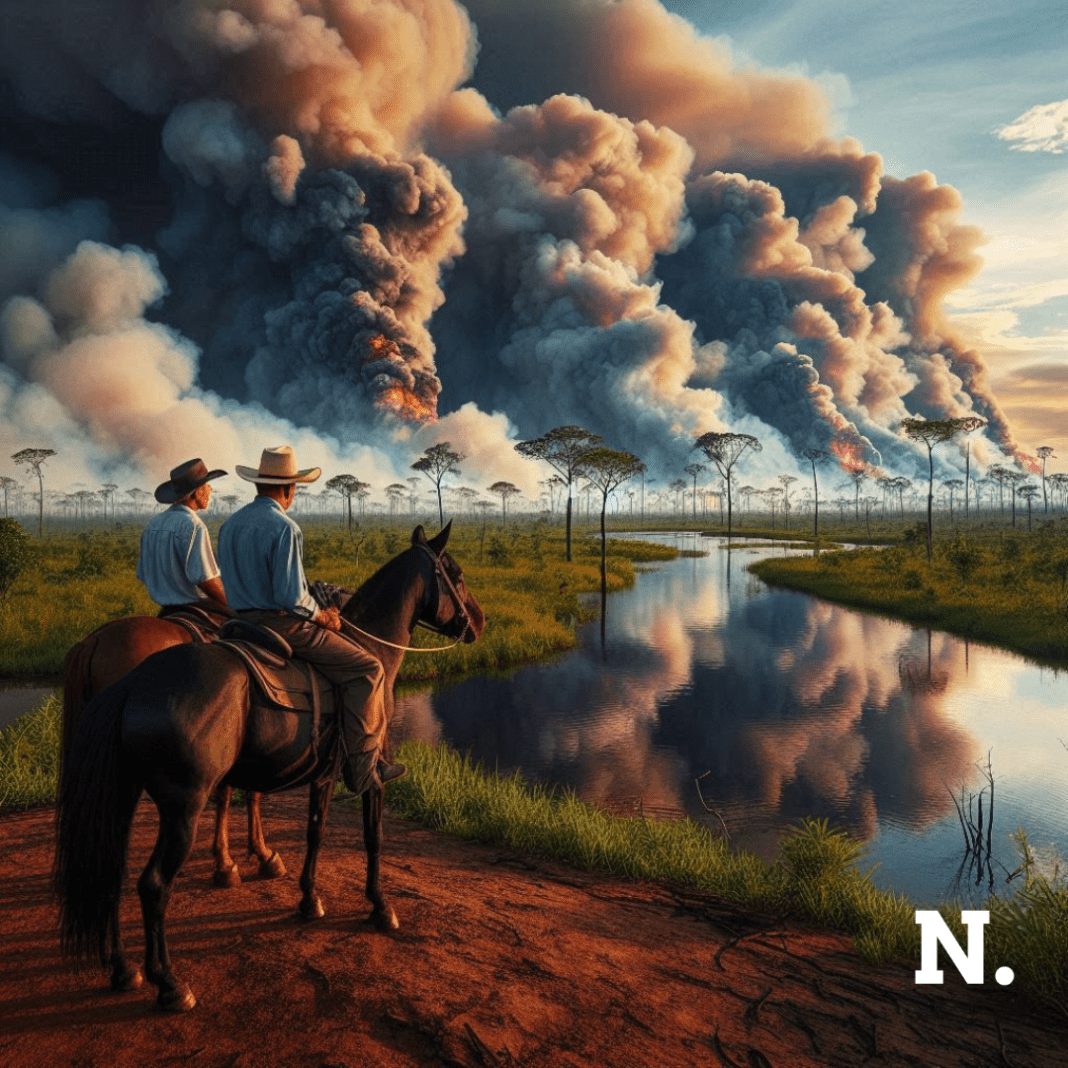In 2024, the Pantanal wetlands of Brazil have experienced a record surge in wildfires. The fires increased tenfold compared to the same period last year. This information is according to Brazil’s National Institute of Space Research (INPE). Local residents, Jose Cleiton and Brandao Amilton, traverse the expansive Pantanal on horseback. They encounter towering walls of smoke rising into the sky. The dry season has not yet reached its peak. However, the wetlands are already so parched that wildfires are becoming increasingly common.
The Impact of Fires on Local Communities
Brandao Amilton, a local fishing guide, described the severe conditions, noting the difficulty in breathing and the adverse effects on newborn children. The intense heat, combined with the dry conditions and pervasive smoke, has significantly deteriorated the weather in the region. Amilton expressed concern about the escalating heat and dryness, which exacerbate the already challenging environment of the Pantanal.
Jose Cleiton, a farmer, highlighted the dire situation for livestock. He and Amilton guide cattle across the floodplain, hoping to improve their chances of survival. Cleiton expressed fear that the advancing fires could encircle the cattle and cause their deaths by burning. The fires pose a significant threat to both the local communities and the diverse wildlife that inhabit the Pantanal.
Significance of the Pantanal and concerns regarding the Fires
The Pantanal wetlands cover an area roughly ten times the size of the Florida Everglades. They are a vital habitat for numerous species, including jaguars, tapirs, caimans, and giant anteaters. The region’s usual seasonal flooding has been disrupted due to weak rains since late last year. This disruption has left large areas vulnerable to fires. The Pantanal is approaching the peak wildfire season, typically in September. Experts warn that this year’s fires are already worse than the record-breaking fires of 2020. In 2020, a third of the wetlands burned.
Record-Breaking Fires Season
According to satellite monitoring data from the Federal University of Rio de Janeiro, more than 3,400 square kilometers (1,315 square miles) of the Pantanal have burned between January 1 and June 9, marking the highest level of fires on record since data collection began in 2012. This unprecedented level of burning is alarming and highlights the severity of the current fire season.
Climate Change and El Niño’s Influence
The stark contrast between the record fires in the Pantanal and the record flooding in Rio Grande do Sul, three states to the south, can be attributed to the same underlying phenomenon—an unusually strong El Niño pattern exacerbated by climate change. Michael Coe, a climate scientist at the Woodwell Climate Research Center, explained that climate change has intensified the effects of El Niño, creating unprecedented conditions. Coe emphasized that the current situation represents a new and challenging realm of environmental conditions.
The Urgency of Addressing Climate Change
The ongoing fires in the Pantanal underscore the urgent need for comprehensive action to address climate change. The increasing frequency and intensity of extreme weather events, such as wildfires and floods, highlight the broader impacts of a warming planet. Effective mitigation and adaptation strategies are crucial to protect vulnerable ecosystems like the Pantanal and the communities that depend on them.
Conclusion
The record surge of fires in Brazil’s Pantanal wetlands in 2024 is a stark reminder of the profound impacts of climate change and the urgent need for global action. The dry conditions and intense heat have created a hazardous environment for both local communities and wildlife. The disruption of seasonal flooding has left large areas vulnerable to fires, exacerbating the ecological crisis in the region. As climate change continues to intensify weather patterns, it is imperative to implement effective strategies to mitigate its effects and safeguard the world’s critical ecosystems.





